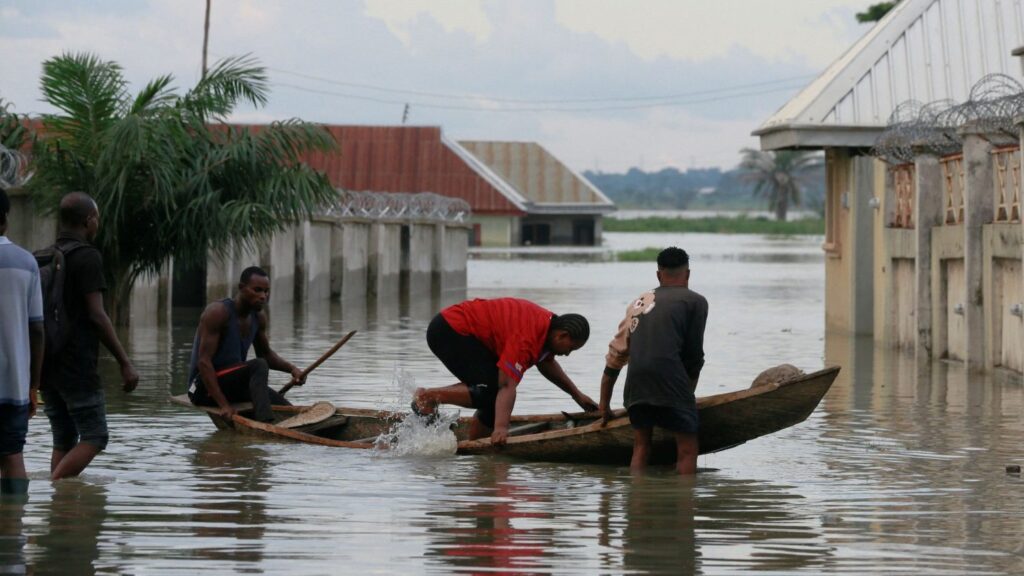At least 200 people have been confirmed dead and over 500 remain missing after devastating floods swept through the market town of Mokwa in central Nigeria early Thursday morning, following hours of intense rainfall that triggered one of the region’s worst natural disasters in decades.
Heavy downpours inundated the region in the early hours, unleashing torrents of water that submerged roads, washed away bridges, and engulfed entire neighborhoods. Eyewitnesses described rooftops barely visible above the floodwaters as residents clung to debris in desperate efforts to survive.
Rescue efforts were launched quickly but have since been called off, with officials citing impassable roads, dangerous conditions, and lack of visibility as major obstacles. The town, located approximately 380 kilometers west of the capital Abuja, lies on the banks of the River Niger and is known as a critical trading and agricultural hub.
Among the hardest hit was local resident Fatima Kontagora, a mother of six who lost four of her children to the floodwaters.
“My children and property were carried away. My own children, taken by the flood—there are four—and we’re yet to see their remains. All my property is gone, all my finances are gone; there’s nothing left for me now. Even this dress I have on was given to me by someone else. In my family alone, we lost 18 people,” Kontagora told Amnewsworld.
Seasonal flooding is a regular threat in Nigeria, especially during the wet season between April and October. However, meteorological experts say this year’s combination of prolonged dry periods and sudden excessive rainfall is pushing the country into an era of more extreme climate events.
Environmental analysts warn that the effects of climate change, inadequate infrastructure, and deforestation have made regions like Mokwa increasingly vulnerable to flash floods. These factors were also blamed in last year’s disaster in Maiduguri, where a dam collapse and heavy rains killed over 30 people and displaced millions, compounding the humanitarian crisis driven by the Boko Haram insurgency.
Emergency response agencies are working to assess the full scope of damage in Mokwa, as communities mourn loved ones and begin the difficult process of recovery. International aid organizations have begun mobilizing relief supplies, but access remains limited due to widespread destruction of critical transport links.
Local officials have called on the federal government and global partners for immediate assistance, warning that more rain is forecast in the coming days and the risk of further flooding remains high.


